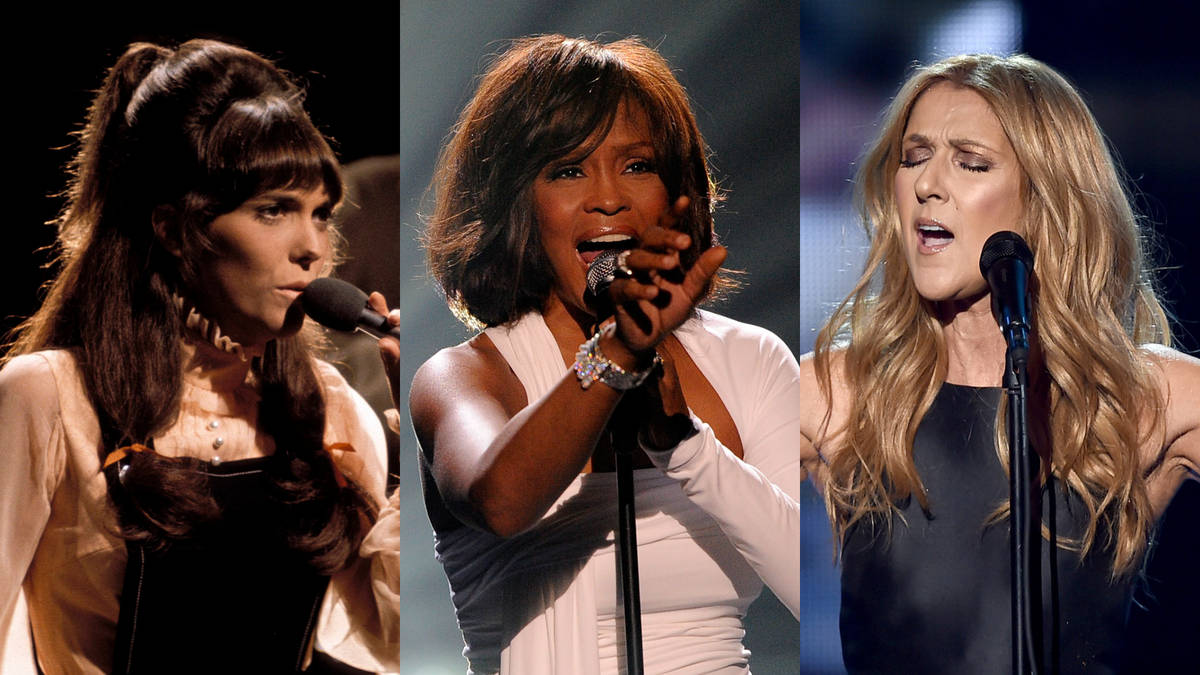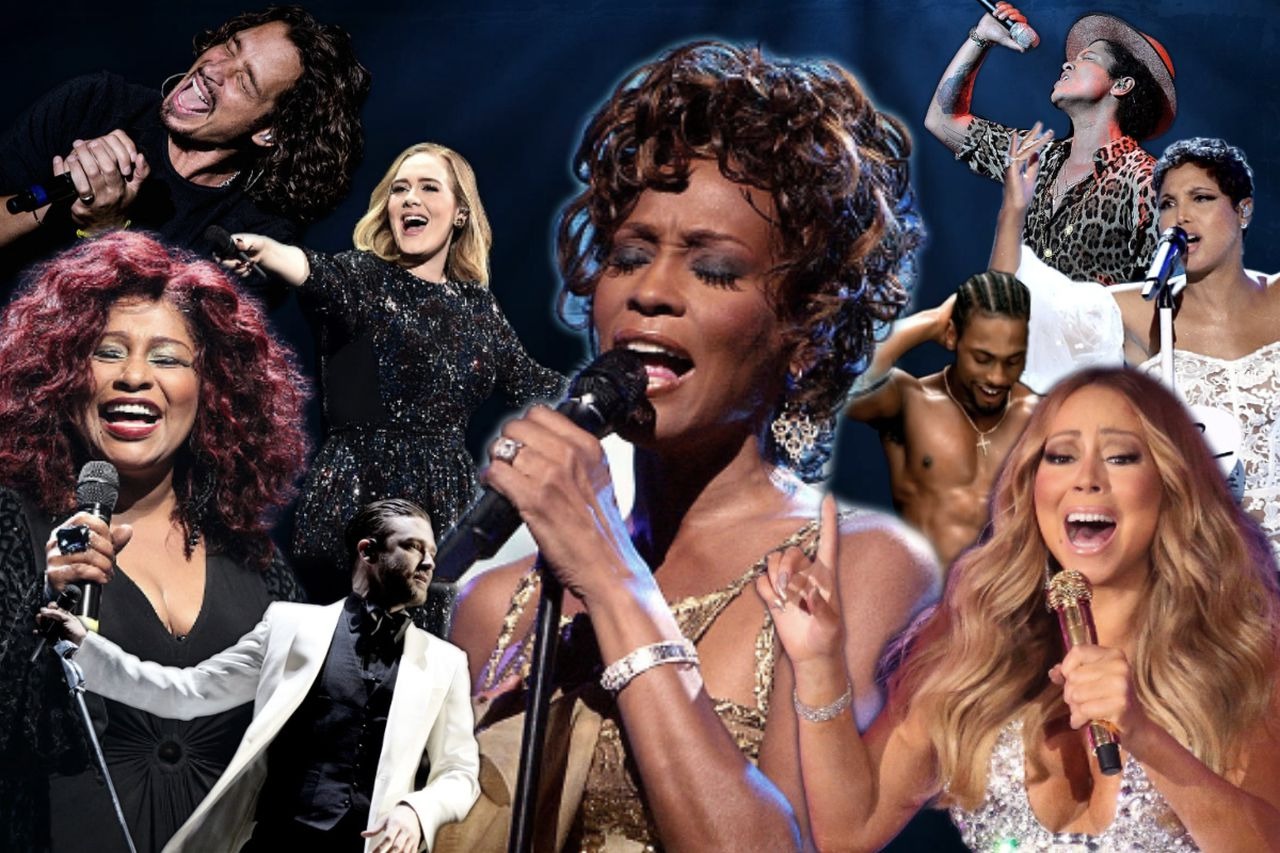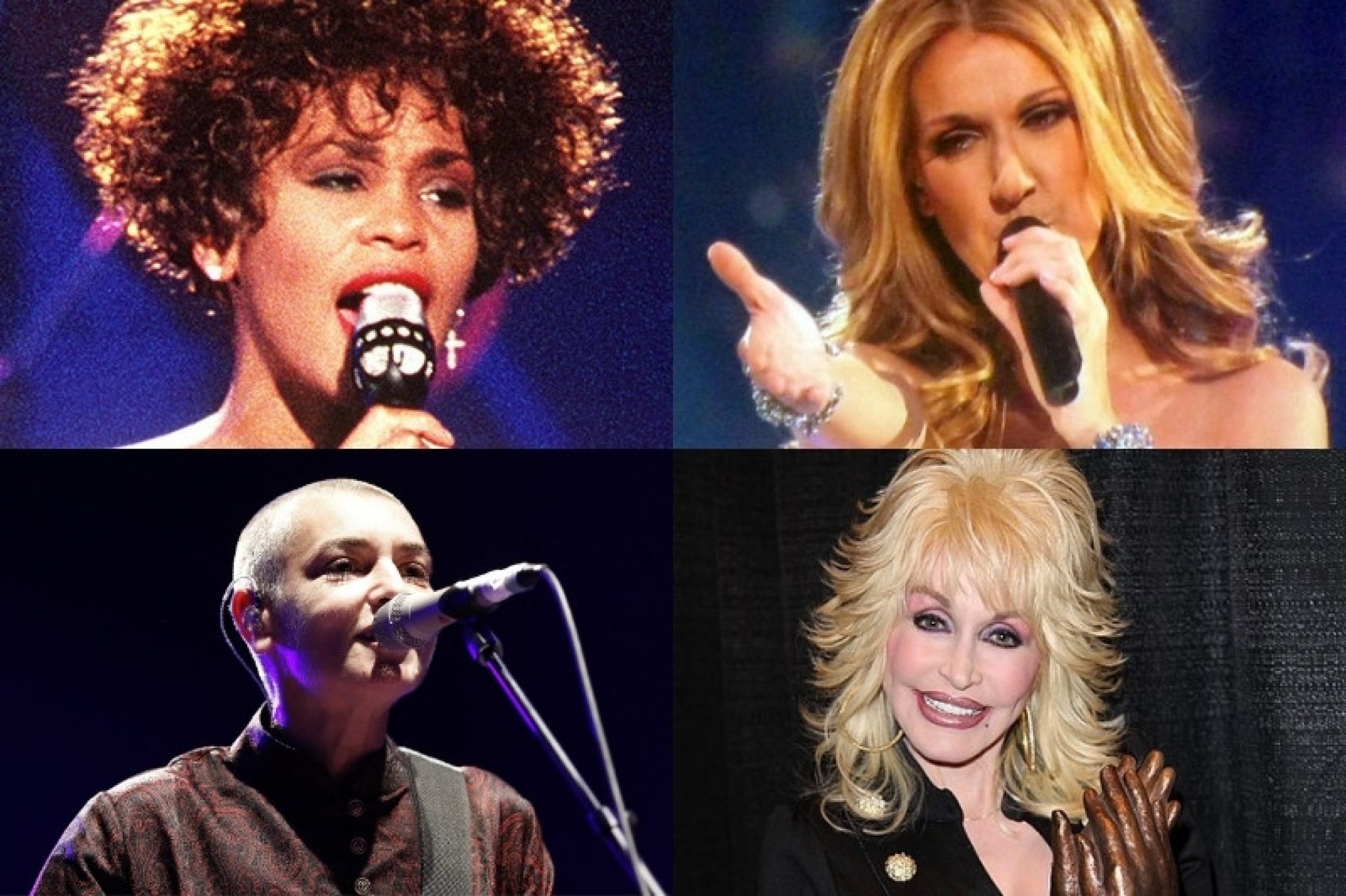Singers Who Stutter - Unpacking Vocal Expression
Introduction to Vocal Expression
What is Stuttering and How Does it Affect Singers?
How Does Singing Differ for Singers Who Stutter?
The Power of Voice Beyond Speech Patterns
Exploring the Celebration of Vocal Talent
What Can We Learn From the Stories of Singers Who Stutter?
The Impact of Singers Who Stutter on Music
A Look at Vocal Greatness and Speech Diversity
Introduction to Vocal Expression
Have you ever considered how truly remarkable the human voice is, especially when it comes to making music? It's almost as if a different part of us takes over when we sing, allowing sounds to flow out in ways that speaking might not always permit. This thought often comes up when we think about how people express themselves through song, particularly for those who might experience differences in their speech, like stuttering. So, it's a fascinating thing to think about, really, how the act of singing can sometimes feel like a completely separate way of communicating.
When we talk about famous vocalists, our thoughts often go to people like Freddie Mercury, known for his amazing stage presence and a voice that could reach across four octaves. Or maybe Elvis Presley, who many call the "king of rock." These performers, and others like Taylor Swift, Justin Bieber, and Adele, are celebrated for their voices and the way their music touches people. We see them on lists, like the one from Rolling Stone magazine that picked the 100 greatest singers, put together by many musicians, or those lists showing the most popular singers right now. Basically, these are people whose voices make a big impact.
- Jcpenney Fairview
- Gary Hilton Today
- Carly Pearce 29 Lyrics
- Chrissy Teigen Grammys 2025
- Lucy And Stephen Dating
It's pretty clear that when people discuss these musical giants, the focus is usually on their singing abilities, their range, or how they connect with an audience. What's often not part of the public conversation, yet, is how some people who have a speech pattern like stuttering might also find their voice, quite literally, through song. This makes us wonder about the ways our voices work, and how singing can be a different kind of expression than just talking.
What is Stuttering and How Does it Affect Singers?
Stuttering, to put it simply, is a speech pattern where the flow of words is interrupted. This can show up as repeating sounds or syllables, stretching out certain sounds, or even having moments where no sound comes out at all. It's a pretty common thing, affecting people from all walks of life. When someone stutters, it typically happens during everyday conversation, when they are just trying to get their thoughts out. It's a matter of how the brain processes and coordinates the movements needed for speech. So, you know, it’s a physical thing with a neurological basis.
Now, when we consider singers who stutter, it's interesting because the act of singing uses a different part of the brain, or at least, it uses the same parts in a different way, compared to speaking. This is why many people who stutter in their daily conversations often find that their speech flows smoothly when they sing. It's almost like the melody and rhythm provide a structure that helps bypass the usual difficulties. For instance, the very structured nature of a song, with its set timing and pitch, might offer a kind of support for the vocal cords and mouth movements that isn't there in spontaneous talk.
- Zac Clark Kaitlyn
- Philip Seymour Hoffman Saturday Night Live
- Lawrence D Piro
- Did Spencer Get Drafted On All American
- Manya Seinfeld
This difference means that someone might have a lot of trouble getting words out in a chat, but then, when they pick up a microphone, their voice becomes completely clear and steady. It’s a bit of a paradox, really, and it speaks to the unique ways our brains handle different kinds of vocal output. For singers who stutter, this distinction is often a source of freedom and a way to express themselves without the usual challenges they might face. They find a sort of release, you know, in the melody and the words put to music.
How Does Singing Differ for Singers Who Stutter?
The way singing works for someone who stutters can be quite different from how they experience spoken words. When a person speaks, the brain has to quickly pull words, put them in order, and then send signals to the vocal cords, tongue, and lips to make the sounds. This whole process happens in real-time, often without much pre-planning. For someone who stutters, there can be a slight disconnect or a timing issue in this rapid sequence, leading to repetitions or blocks. It's like a tiny hiccup in the flow of information, basically.
However, singing is usually more rhythmic and melodic. The words are often learned beforehand, and they are tied to a tune and a beat. This musical framework seems to help organize the vocal process. It's as if the melody acts as a guide, helping the vocal apparatus move smoothly from one sound to the next. For singers who stutter, this structured approach can make all the difference. They might find that their voice simply glides over the words when a song is involved, something that doesn't happen when they are just chatting with someone.
It's also worth thinking about the emotional and psychological side of things. When people sing, they often feel a different kind of confidence or freedom. The focus shifts from the individual words to the overall feeling and sound of the music. This change in focus, combined with the rhythmic support, can create an environment where stuttering is less likely to occur. So, for singers who stutter, it’s not just a physical difference, but a mental one too, that allows their true vocal talent to shine through. It’s pretty amazing, really, how music can do that.
The Power of Voice Beyond Speech Patterns
When we talk about what makes a voice powerful or memorable, it’s often about more than just the sounds it makes. It’s about the feeling it carries, the stories it tells, and the way it connects with people. Think about the way Freddie Mercury could command a stage with his voice, or how Elvis Presley's singing just reached out and grabbed you. These are examples of voices that go beyond simple speech, becoming a vessel for art and emotion. It's very much about the overall impact, you know, rather than just the mechanics.
For singers who stutter, their vocal ability in song proves that a person's speaking pattern does not define their capacity for musical expression. A voice can still have an incredible range, a beautiful tone, and a strong presence, even if the person experiences stuttering in their daily talk. The quality of a singing voice is about pitch, rhythm, timbre, and the emotional delivery of a song. These aspects are typically unaffected by the underlying mechanisms of stuttering. This means that a singer’s unique sound and their ability to move an audience remain completely intact.
This idea reminds us that greatness in music is truly about talent and passion, not about how one speaks words in conversation. The lists of famous singers, from the ones Rolling Stone put together to those showing the top artists of today, celebrate vocalists for their musical gifts. It’s a testament to the idea that a voice, when used for singing, can transcend any speech difference, offering a clear and powerful means of communication and artistry. It’s a pretty inspiring thought, really, when you consider it.
Exploring the Celebration of Vocal Talent
When we look at how the music world celebrates vocal talent, the conversation usually centers on things like a singer's ability to hit certain notes, their unique sound, or their skill at performing for a crowd. We see this in how artists like Taylor Swift and Adele are praised for their chart-topping songs and the way their voices resonate with millions. The focus is very much on the musical output and the connection it creates. So, it's about the artistry, basically.
The lists of "greatest singers" or "most popular singers," whether from 2008 or 2025, highlight qualities such as vocal range, the ability to convey emotion, and a distinctive style. For example, Freddie Mercury's four-octave range is often mentioned as a key part of his genius. These discussions typically don't touch upon speech patterns outside of singing. It’s almost as if the singing voice is seen as a separate entity, judged on its own musical merits. This perspective, you know, really shapes how we appreciate artists.
This general celebration of vocal talent, without specific mention of speech characteristics like stuttering, shows that the power of a singer's voice in performance is what truly matters. It suggests that if a singer who stutters delivers a compelling performance, their speech pattern in conversation becomes secondary to their musical ability. The focus stays on the song and the voice delivering it, which is, in a way, a pure form of artistic appreciation. It's a pretty neat thing, how music can just bypass those kinds of distinctions.
What Can We Learn From the Stories of Singers Who Stutter?
Even without specific examples from our reference text, the very idea of singers who stutter gives us some valuable lessons. It shows us that talent and passion can overcome what might seem like a significant barrier. The fact that singing often provides a smooth flow of words for those who stutter in speech suggests a kind of hidden strength, a different avenue for expression that is always there. It’s a powerful reminder, really, that human abilities are varied and often surprising.
We learn that the voice is incredibly adaptable. The brain finds different pathways for different kinds of vocal tasks. This adaptability means that a person's communication style in one setting, like daily conversation, doesn't limit their potential in another, like singing on a stage. For singers who stutter, their experience highlights this adaptability in a very clear way, showing that the human voice has many ways to make sounds and convey messages. It's a bit like discovering a secret door to a new room, you know, within your own abilities.
Moreover, these stories, even if general, teach us about the importance of focusing on a person's strengths and what they can achieve. When we look at lists of famous singers, we admire their vocal range, their stage presence, and their ability to connect through music. The potential for singers who stutter to achieve similar levels of musical excellence, without their speech pattern being an obstacle in their performance, reinforces the idea that true artistry comes from within, not from a perfect, textbook way of speaking. That’s a pretty important lesson for all of us, honestly.
The Impact of Singers Who Stutter on Music
The presence of singers who stutter, whether widely known for this aspect or not, has an impact on the broader music scene and how we think about vocal performance. It quietly broadens our idea of what a "singer" can be. It challenges any unspoken assumptions that a smooth speaking voice is a prerequisite for a powerful singing voice. This kind of diversity, you know, makes the world of music richer and more inclusive.
Their contributions, regardless of public knowledge about their speech patterns, add to the vast collection of voices that have shaped history and defined our lives, as mentioned in discussions about the 200 greatest singers of all time. Every voice brings its own unique qualities and experiences to the music. For singers who stutter, their ability to sing without hesitation often means that their vocal talent is judged purely on its musical merit, which is how it should be for any artist. It’s a pretty pure way to appreciate art, actually.
This also sends a message of possibility to others who might experience stuttering. It shows that a speech difference does not have to hold back one's artistic dreams, especially in a field like singing where the brain processes vocalization differently. It’s a subtle but significant way that these individuals, through their very existence as performers, contribute to a more accepting and diverse understanding of human expression in music. So, in a way, their impact is quite profound, even if it's not always explicitly talked about.
A Look at Vocal Greatness and Speech Diversity
When we consider the many famous singers who have graced the stage, from the legendary figures like Nat King Cole to current stars like Billie Eilish, we are celebrating a wide array of vocal styles and artistic expressions. The discussions around these artists, whether they are listed among the 30 most famous or the 40 most famous singers of all time, typically focus on their vocal range, their stage presence, or the way their music has shaped different eras and genres. It's very much about the sound they create and the feeling they evoke, you know.
The idea of singers who stutter, while not explicitly detailed in the provided information about these celebrated artists, reminds us that vocal greatness comes in many forms. It prompts us to think about how our perceptions of a voice might be influenced by how a person speaks, and how singing can sometimes offer a completely different experience. It's a testament to the fact that talent isn't limited by any single characteristic, but rather flourishes through dedication and the unique ways individuals express themselves. That’s a pretty cool thing to consider, honestly.
Ultimately, the world of music is a place where voices, in all their diversity, find a way to connect with listeners. Whether it's the powerful delivery of a rock anthem or the gentle notes of a ballad, the act of singing often transcends everyday speech patterns. This makes us appreciate the sheer variety of human vocal ability and the many paths artists take to share their gifts with the world. It’s a truly rich and varied landscape of sound, and that’s something to be celebrated, really.
- Will Smith Family Picture
- Uranus In Aquarius Woman
- Nicole Richie And Brody Jenner
- Vance Booed At Kennedy
- Oj Simpson Knife Found

The 30 best female singers of all time, ranked in order of pure vocal

Top 10 Famous Singers in the World 2023 - Corkyshirt

The 30 Best Female Singers of the 80s - Musician Wave